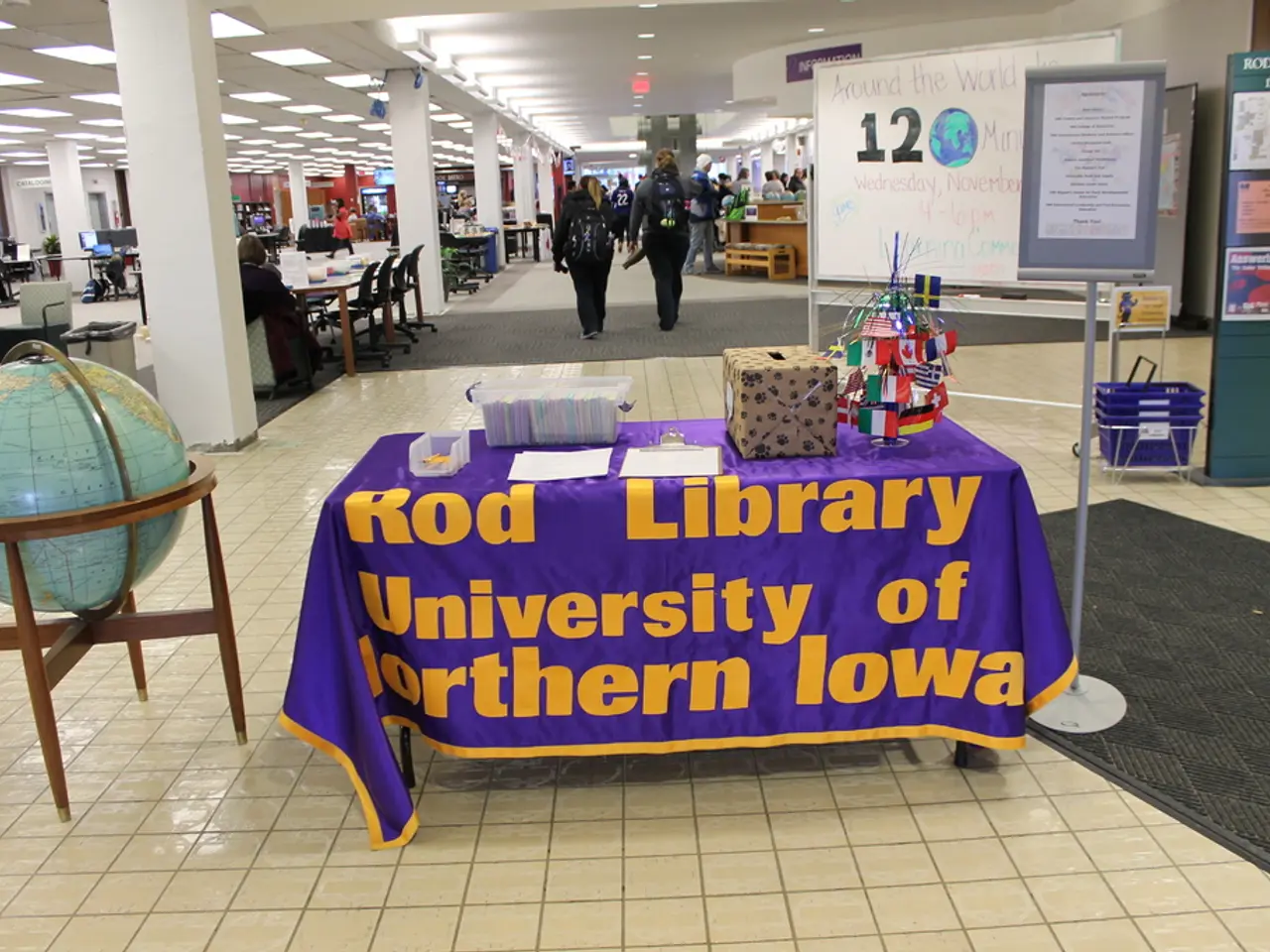Tourism and Culture Intersect in Kinshasa: Celebrating Harmony Through the "Rumba Pathway for Peace"
In a historic three-day event held from July 16 to 18, 2025, the Democratic Republic of the Congo (DRC) played host to the Rumba Route for Peace Festival. This vibrant celebration of Congolese rumba music served as a powerful medium for cultural diplomacy, peacebuilding, sustainable tourism, and youth empowerment, aligning with the UN Tourism’s “Agenda for Africa: Tourism for Inclusive Growth”[1][3][5].
Agenda and Participation
The festival was organised under the High Patronage of President Félix Antoine Tshisekedi Tshilombo and featured cultural performances and discussions that highlighted the role of rumba music in transcending borders and building bridges between peoples[1][3]. The event placed emphasis on music’s power to heal, connect, and inspire across cultures.
Key governmental figures including the Minister of Tourism, Didier M’Pambia Musanga, and the Minister of Culture, Arts and Heritage, Yolande Elebe Ma Ndembo, were present, alongside the United Nations World Tourism Organization (UNWTO) Secretary-General Zurab Pololikashvili[1][3]. Other participants included global government officials, private sector leaders, creative entrepreneurs, and cultural institutions.
Impact on Tourism and Inclusive Growth
By placing Congolese rumba at the heart of the festival, the event highlighted DRC’s unique cultural heritage to an international audience, promoting cultural tourism. The festival aimed to demonstrate how music and cultural events can stimulate sustainable tourism, create economic opportunities, and empower youth, contributing to peace and inclusive growth[1][2][5].
The festival aligned with broader UN goals to use tourism for economic development that benefits local communities and promotes cultural diversity and understanding[1][2][5]. Sony Music Entertainment, Spotify, UNESCO, Sound Diplomacy, ConcertsSA, and the University of La Plata in Argentina were among the institutions that participated in the event.
Scholarships and Empowerment
As part of the festival, UN Tourism awarded 100 scholarships in Destination Marketing via its UN Tourism Academy. This initiative is a long-term investment in African tourism professionals and innovators, aiming to empower the next generation to drive sustainable and inclusive growth in the tourism sector[1][4].
A Bridge Between People and Nations
The Rumba Route for Peace Festival was more than just a music event. It was a platform for exchange, sharing, and discovery, reflecting the ambition to build bridges between peoples through art, exchange, and discovery, as stated by the Minister of Culture, Arts, and Heritage of the DRC[2]. The festival's theme was deeply echoed in UN Tourism's advocacy for using culture as a bridge between people and nations.
The festival offered hands-on experiences such as an immersive rumba initiation for participants to connect with heritage. The performances and experiences aimed to connect participants with heritage through movement, flavor, and sound. A standout moment of the festival was the "Fair Play" Masterclass led by the African Regional Intellectual Property Organization (ARIPO), which empowered 100 artists and creative entrepreneurs with practical tools to build fairer, more sustainable music economies.
UN Tourism reaffirmed its commitment to a creative, youth-led, and sustainable future. The festival's activities are in line with UN Tourism's advocacy for using culture as a bridge between people and nations, and it was in full alignment with UN Tourism's "Agenda for Africa: Tourism for Inclusive Growth". An audience with President Tshisekedi reflected high-level national support for leveraging culture and tourism as strategic pillars of development.
In conclusion, the Rumba Route for Peace Festival was a landmark cultural and tourism event in the DRC that leveraged the unifying power of rumba music to advance peace, sustainable tourism, and inclusive economic growth, supported by national leadership and international partners such as the UNWTO[1][3][5]. The festival's legacy will undoubtedly inspire future events that celebrate the power of music and culture to bring people together and drive positive change.
[1] UN Tourism (2025). Rumba Route for Peace Festival. [Online]. Available: https://www.unwto.org/rumba-route-for-peace-festival [Accessed 2025-07-25].
[2] Ministry of Culture, Arts and Heritage of the Democratic Republic of the Congo (2025). Rumba Route for Peace Festival Statement. [Online]. Available: https://www.mincac.cd/rumba-route-for-peace-festival-statement [Accessed 2025-07-25].
[3] UNWTO (2025). Agenda for Africa: Tourism for Inclusive Growth. [Online]. Available: https://www.unwto.org/agenda-for-africa [Accessed 2025-07-25].
[4] UN Tourism Academy (2025). Scholarships in Destination Marketing. [Online]. Available: https://www.unwto.academy/scholarships [Accessed 2025-07-25].
[5] UN (2025). Sustainable Development Goals. [Online]. Available: https://www.un.org/sustainabledevelopment/sustainable-development-goals/ [Accessed 2025-07-25].
- The Rumba Route for Peace Festival, under the High Patronage of President Tshisekedi, fostered collaboration among government officials, private sector leaders, and cultural institutions, bridging gaps between nations.
- The festival emphasized the potential of music, especially rumba, to stimulate economic opportunities and promote sustainable tourism, contributing to peace and inclusive growth.
- The event, in line with UN Tourism’s "Agenda for Africa," aimed to empower the next generation of tourism professionals and innovators through scholarships in destination marketing.
- Sony Music Entertainment, Spotify, UNESCO, Sound Diplomacy, ConcertsSA, and the University of La Plata, among others, participated in the festival, reflecting its global influence.
- The Rumba Route for Peace Festival highlighted the significance of Congo's cultural heritage, positioning it as an attractive destination for tourists seeking immersive cultural experiences.
- The festival's "Fair Play" Masterclass, led by ARIPO, equipped 100 artists and creative entrepreneurs with tools to build fairer, more sustainable music economies, promoting innovation in the fashion-and-beauty, food-and-drink, home-and-garden, and lifestyle industries.
- The festival served as a platform for cultural exchanges, reflecting the UN's advocacy for using culture as a bridge between people and nations, ultimately leading to a more culturally diverse and understanding world.
- The festival showcased the power of rumba music to heal, connect, and inspire, transcending borders and fostering peace and understanding in a digital age.
- The Rumba Route for Peace Festival was more than just an entertainment event; it was a testament to the transformative power of culture and tourism in driving economic development and promoting peace, education, and self-development in the Democratic Republic of the Congo and beyond.





